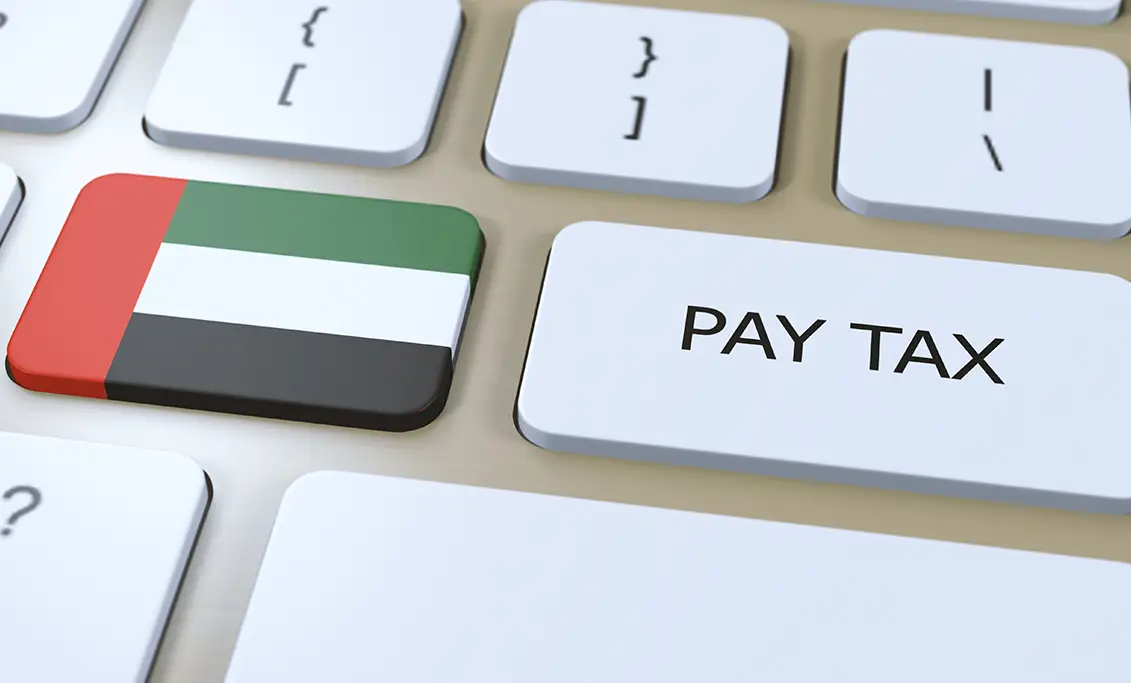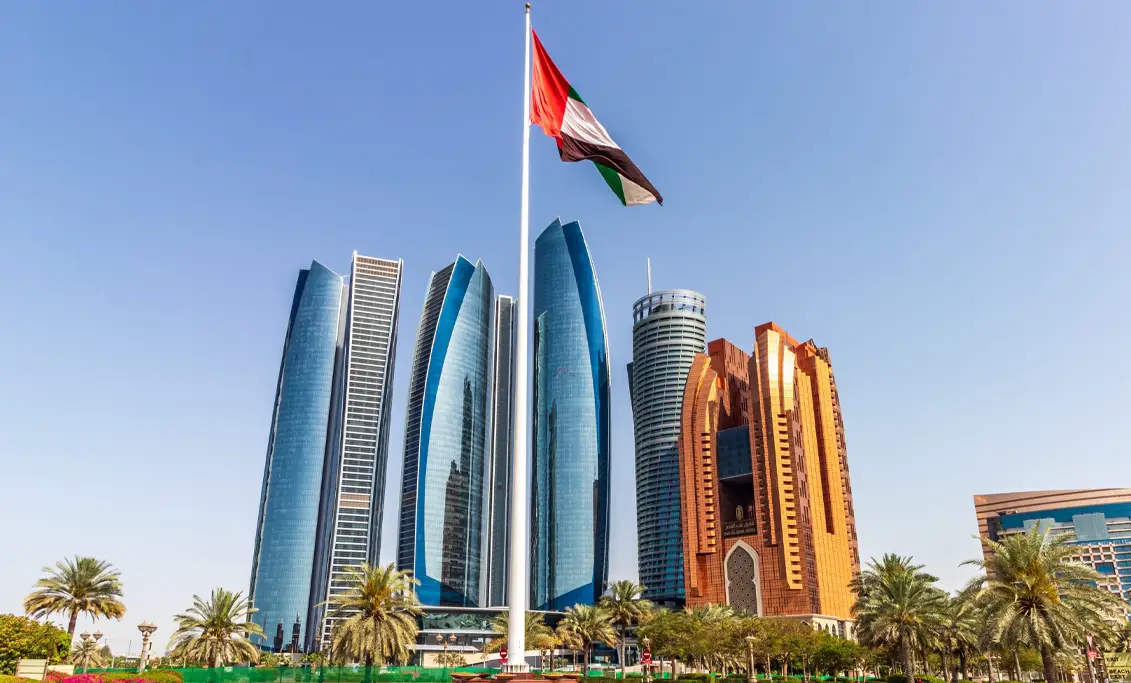
What is the VAT system in the UAE?
Learn about the UAE’s VAT system, a 5% tax on most goods and services introduced to diversify the economy and boost government revenue. Stay compliant with UAE tax regulations
Published At 11/27/2024


The United Arab Emirates (UAE) offers a favorable tax environment for business owners, both citizens and foreigners, which helps to impose fair taxes that contribute to economic growth, business development, and overall prosperity.
This tax environment makes the UAE an attractive destination for investment from around the world.
One of the key regulations is the VAT system, which was implemented in 2018. This article provides an overview of the VAT system in the UAE, its benefits, and the registration process.

What are the types of taxes in the UAE?
The UAE imposes fewer types of taxes compared to many other countries. The government does not impose taxes on salaries, wages, or personal income, nor does it have a sales tax system. Instead, VAT is applied to goods and services. Here’s an overview of the main taxes in the UAE:
- Value Added Tax (VAT): The VAT rate is 5%, applied to most goods and services with some exceptions. Exemptions include certain sectors such as financial services and residential real estate.
- Excise Taxes: These taxes vary by product, reaching up to 100% for tobacco and energy drinks, and 50% for carbonated drinks.
- Corporate Tax: Applied to corporate profits at a rate of 9%. This tax does not apply to some sectors like extractive industries (oil and gas).
- Customs Duties: These duties are imposed on some imported goods at rates ranging from 0% to 5% for most products, and can be higher for special products like tobacco and alcohol
- Municipal Fees: Imposed by some emirates on residential and commercial properties. For example, Dubai imposes a fee of 5% on annual rent for residential properties and 10% on commercial properties.
- Tourism Fees: These are charged on hotels and vary depending on the emirate and type of accommodation.
What is the VAT system in the UAE?

VAT is an indirect tax imposed on most goods and services sold and purchased in the UAE. Its rate is generally 5%, and it is administered by the Federal Tax Authority (FTA). Here are the main features of this tax:
- VAT in the UAE can be mandatory or voluntary. Mandatory VAT registration is required for businesses with annual taxable supplies exceeding AED 375,000. Voluntary VAT registration is available for companies with annual taxable supplies between AED 187,500 and AED 375,000.
- The tax applies to most goods and services, except in cases such as zero-rated supplies like selected financial services, education, and healthcare, and tax-exempt goods like certain types of real estate and financial services.
- Businesses must register with the Federal Tax Authority, obtain a Tax Registration Number (TRN), and submit periodic tax returns every quarter, detailing collected and paid taxes. After submitting the tax return, companies pay the needed amount to the authority.
- Companies can reclaim VAT paid on purchases and operating expenses related to taxable business activities, but they must submit a refund request along with tax returns and provide supporting invoices and documents.
- The Federal Tax Authority imposes penalties on companies that do not comply with the laws, including financial fines.
Steps to register for VAT in the UAE
Whether registration for VAT is mandatory or voluntary, companies must follow these steps when registering for taxes:
- Create an account on the Federal Tax Authority (FTA) portal by visiting the official FTA website: [FTA e-services] https://eservices.tax.gov.ae clicking on "Register" to create a new account, and fill in the required information such as email, password, and contact details.
- Prepare the required documents such as a copy of the trade license, copies of the passport and Emirates ID of the business owner or legal representative, a certificate of incorporation for registered companies, and comprehensive financial documents including bank statements and other documents proving revenue and expenses.
- Upload the documents to your created account. Verify the accuracy of all entered information.
- After reviewing and approving your application, you will receive your Tax Registration Number (TRN) via email. Keep it for use in all future tax transactions.
How to calculate VAT in the UAE

To calculate VAT in the UAE, follow these simple steps whether buying or selling. Remember, the calculated tax is 5% of the original price of the good or service.
When submitting the tax return, the net tax is calculated by subtracting the total tax paid on purchases from the total tax collected on sales.
Here are the steps to calculate VAT in the UAE when buying and selling, as well as how to calculate it when submitting a tax return:
- To calculate VAT when buying, determine the price of the good or service excluding VAT. Then multiply the price by the tax rate (5%). At this stage, the tax is the price of the good × 0.05. You can then add the tax to the original price to get the total price. (Total price = price of the good + tax)
Example:
Price of the goods excluding tax: AED 200.
Tax calculation: AED 200 × 0.05 = AED 10.
Total price: AED 200 + AED 10 = AED 210.
- To calculate VAT when selling, determine the selling price of the good or service excluding VAT. Then multiply the selling price by the tax rate (5%). Here, the tax equals the selling price × 0.05. Add the tax to the selling price to get the total price.
- To calculate net VAT when submitting the tax return, determine the total VAT collected from customers on sales, and the total VAT paid on purchases and expenses.
The net tax due or refundable = total tax collected - total tax paid.
Economic Benefits of VAT in the UAE

beach in Dubai
The VAT system in the UAE aims to support the national economy by providing additional revenue for the government, enhancing tax compliance, and ensuring transparency in commercial transactions, ultimately achieving fairness and convenience for all parties.
The benefits of this tax can be summarized as follows:
- Increasing Government Revenue and Diversifying Income Sources: By moving away from exclusive reliance on oil revenues, VAT helps to diversify the government's income streams.
- Funding Public Services: The revenue generated from VAT supports essential public services that benefit all residents, including healthcare, education, security, and defense.
- Controlling Inflation: Taxes generally help regulate liquidity in the economy, thereby reducing the likelihood of excessive inflation.
- Enhancing Transparency and Accountability: VAT promotes transparency and accountability in business transactions, ensuring smooth and legitimate business operations.
- Strengthening the Sense of Belonging and Citizenship: Both citizens and residents feel they are part of the financial system and contribute to funding public services, which fosters a sense of responsibility.
In this way, the VAT system in the UAE plays a crucial role in building a diverse and sustainable economy, improving the standard of living, and enhancing the quality of services provided.



